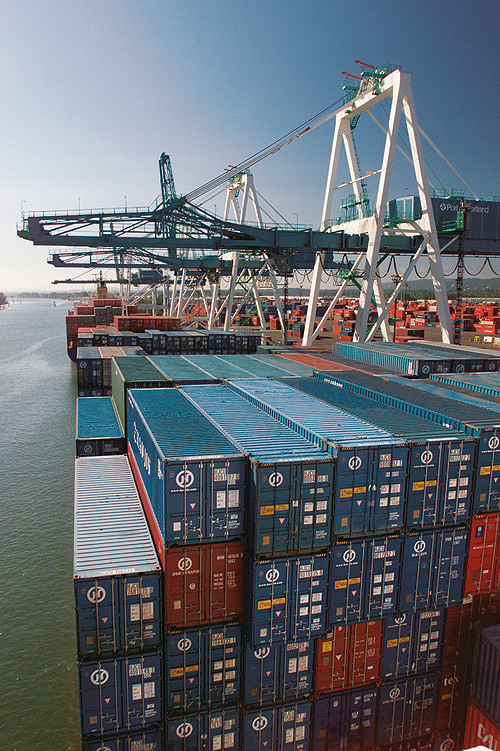 The Port of Portland has seen a 36% increase in marine business so far in 2010, showing a positive trend for at least one area of business in Oregon.
The Port of Portland has seen a 36% increase in marine business so far in 2010, showing a positive trend for at least one area of business in Oregon.
 |
The Port of Portland has seen an increase in its marine business since last year. // Photo courtesy of the Port of Portland |
The Port of Portland has seen a 36% increase in marine business so far in 2010, showing a positive trend for at least one area of business in Oregon.
Overall tonnage, used by the port to determine growth in business, was up 36% year-to-date in September, with growth in grain, steel and bulk mineral standing out. The port controls four marine terminals with eight major maritime tenants who have leases with the port. While each tenant has been affected by different global forces, improvement in both service and demand has been uniform overall, says executive director Bill Wyatt.
Port spokesman Josh Thomas says the port has seen double- and triple-digit improvement in most cargo categories this year.
The Pacific Northwest has seen a strong demand for grains this year because of bad harvests in Russia and Australia, Wyatt says. With its grain exports up 22% for the fiscal year ending in June, the port remains one of the strongest exporters of grain in the U.S.
The port also signed a 25-year lease in May with the world’s fourth-largest container company, Manila-based International Container Terminal Services Inc. The company will pay the port $8 million at signing, and an annual rent of $4.5 million.
This deal also coincides with deepening the port’s navigation channel from 40 to 43 feet, which the port hopes will attract bigger ships.
Westwood Shipping Lines, a subsidiary of Weyerhaeuser Co. based in Federal Way, Wash., signed a six-month contract, which includes the option to extend the agreement for an extra year, that began in July. This will open up shipping access to Japan and South Korea, which Wyatt says will help the overall growth of cargo volume. Westwood will carry non-refrigerated containerized agricultural products from valley, upriver and inland customers.
The port also operates Portland International Airport, which has seen a slight increase in both passenger and air cargo traffic in the first nine months of the year, according to airport spokesman Steve Johnson. Johnson attributes the increase in cargo to businesses restocking inventories early in the calendar year, and the increase in passenger traffic to service additions in new cities as well as an overall efficiency in flight arrivals and departures. Passenger traffic was up 0.7% and air cargo was up 4.6% year-to-date over last year.
“We came off a year in which all our employees [including] myself were subject to pay cuts, slowed capital spending, slowed discretionary expenditures, all while trying to be careful to keep costs down,” says Wyatt. “We acted very quickly, and this paid off for us and our tenants.”


